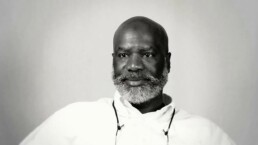Thinking about Halloween: considerations for parents (and others)
5 min read
As Halloween comes around, some Muslim parents will enquire once again into the shar’i permissibility of allowing their children to dress up in costumes and join in activities such as trick-or-treating. We could get into a long-winded and technical breakdown on what it means to participate in a festival that includes enthusiastically dressing up as Shaitan & Co (regardless of whether one’s child also does or does not) but I think most people, intuitively, can figure out what is appropriate for the people of imaan and followers of the Prophets.
So my point here isn’t to engage with Halloween, but with sentiments that are tangentially raised by some parents when asking me the question: “Is it permissible…because I don’t want the kids to feel left out and it’s good that they integrate/get involved…” So the two points parents reason with are: (1) Integration, and (2) feeling left out. Generally, it's very important that Muslims integrate rather than segregate for a number of shar’i and political reasons (better explored elsewhere), and fitting in as much as possible (and as much as is feasible in accordance with the shari'ah) normalises people of faith in wider society and helps young believers develop a sense of belonging to their people.
British & American Muslims: differences & ramifications
5 min read
A matter to highlight is that we are very different from our American brethren, and it doesn’t work well with our interests to assume that their issues are ours, or the same. The problems that arise from this is that we are unable then to address our own unique set of circumstances constructively that are shaped by different variables.
Of course, I have my own views on each of the following, but my point here isn’t to make value judgements about our cultural, political and social reality, nor to say anything about the variables that impact on the difference, but merely point them out for those who haven’t considered them:
Marriage Unplugged: A practical workshop for Muslim women
A unique workshop for unmarried AND married believing women!
For Muslims, marriage is a BIG affair, whether you’re thinking about marriage or already married, there’s A LOT to think about. How do you find the right spouse? What do you look for, what should you be wary of, and how can you intelligently prepare? How can you ensure that you’ll have the relationship you want? For those already married, how do you sustain a healthy relationship if you’re in one, and if it's problematic, what can you do to improve your situation? What shar’ī strategies are there to develop your marriage and grow?
What does God and His messenger have to say about all of these things, and what is a godly approach to the challenges of marriage, especially living in the modern western world?
Sitting quiet or simply hoping for the best certainly isn’t one!
Although the Qur'an and prophetic advice is meant to provide the type of psychological stability and emotional security that makes us all positive human beings, a widespread contention is how 'religion' is often used to validate regressive expectations or actively place women in lousy situations.
So to address these things (and more), we’ve organised an entire day workshop for Muslim women that:
- provides an exclusive space for believing women to explore marriage, its processes, and enriching religious ideas. We discuss normative shar’ī ideas on marriage, as well as practical strategies and solutions. This is an exciting and thought-provoking event designed to inform you about faith and the sharī’ah, to empower you to make intelligent, informed and holistic decisions, and offer you tools to radically form a godly and constructive perspective.
- brings together the Qur’an, the sharī’ah, lived experiences, and important contemporary considerations such as cultural/social expectations, compatibility, work etc. to discover a holistic way to evaluate choices and make good decisions.
- discusses what a realistic ‘happy marriage’ might be and looks at a range of considerations you might make before getting married and whilst being married.
- explores how women can prepare to ensure their rights and their own interests, and how they might develop a marital environment that promotes their own psychological, social and spiritual wellbeing.
At this workshop, Shaikh Mohammed Nizami characteristically asks the tough questions, addresses the controversial topics, and provides robust answers. Come and learn as he challenges widespread misconceptions, unpicks facts from fiction, and cultural expectations from the sharī’ah.
The pursuit of happiness is a right for all that is established in the Qur'an, the Sunnah, and the scholarly tradition. It facilitates godliness, productivity and human wellbeing which in turn produces confident, positive and effective believers who are fair to themselves, invaluable to others.
This amazing and unique workshop covers a range of topics which makes it widely applicable and speaks to a range of circumstances.
Date: Saturday 26th October 2019
Time: 10am-5.30pm
Venue: QM Innovation Centre (Clark-Kennedy Lecture Theatre), 5 Walden Street, London E1 2EF
Limited spaces available, so book below to avoid disappointment:
Please note:
- Spaces are limited so booking will end as soon as places are all taken and we won't be ticketing at the door. (All proceeds go to event costs and funding our work.)
- Paper handouts of the slides will be provided, but we'd advise you to bring note-taking equipment and a good translation of the Qur'an (Professor M. Abdul Haleem's is recommended).
- We won't be providing refreshments or meals, but we've chosen a location with loads of restaurants and coffee shops close by.
- We don't provide a creche service and kindly request that you do not bring children.
- We intend to start promptly, so please make sure to be on time.
Is oral sex impermissible?
No, it is not.
There has been an ongoing conversation among British Muslims, literally for decades about oral sex (fellatio and cunnilingus) and the Victorian attitudes that inform certain cultures that make up the British Muslim population has meant that it is rarely dealt with decisively, pragmatically, and with some logic. It can be understandably frustrating when we have to deal with things repeatedly that should have been settled long ago. In my interactions I have found that even the critics of oral sex themselves do not recognise how they impose regressive attitudes on shar’ī discourse and the nature of the bizarre reasoning to justify it, nor the ambiguous nature of answers they give because they become prudish in a public setting.
Stable and secure believing women and our future
Anyone who cares about the present as well as the future of the believers, has to be concerned with the social conditions under which believing women live and their sense of security and stability. If the purpose of the Prophet’s polity was to provide believers with “security to replace their fear” (24:55), then in general, such objectives ought to also be our own. It was such security that not only allowed believers to grow and thrive but also facilitated the spread of the nascent faith. Women tend to be the pillars that hold up the structure of society, they are the carriers of culture, the (more significant) nurturers of today’s citizens, as well as the cultivators of future generations. The future isn’t bright if they’re not happy, and the future won’t be consequential if they’re not content (and resultantly committed). Yes, it requires women to be sensible and realistic in discovering contentment, but it also means that believing men need to provide the conditions for them to be able to do so.
If we think about it from the perspective of our communal interests and the cause of Islam:
Social and political progress tends to be slow. It does not predominantly occur through revolution (an idea that popular culture has come to embrace) but by gradually cultivating today and tomorrow’s citizens - it's the reason Gove was so happy to be education minister. For the sake of the future, we can only expect tomorrow’s people to be confident, faithful and educated folk IF they’re cultivated by equally confident, faithful and educated folk (and of course that includes men as well). Yet despite its demonstrable importance, the environment in which this might occur hasn't significantly developed. Rather than being supported and permitted to get on with it - to seek an environment that’d help to shape confident, faithful and informed believers, many Muslim women find themselves having to battle social and ethno-cultural pressures as well as reductive, condescending and unrealistic ethno-cultural assertions about their ‘place’. It wears them down and inhibits constructive activity. And no, rhetorically referring to Muslim women who are practically treated like mindless maids as ‘queens’ or ‘jewels’ doesn’t make them feel valued – and this isn’t lost on anyone with a semblance of intelligence. Furthermore, it certainly doesn’t lead to the members we all need believing women to be.
Instead, what we regrettably continue to see is a milieu that produces countless restless beings with various worries, who frequently have their good and charitable nature exploited, who remain greatly unappreciated for their labours, whose views might be overlooked simply because they’re women, and who are given legitimate cause to be anxious about their prospects rather than thrilled at the opportunities and positive challenges the future ought to bring. Whilst some men might put it down to "women's nature", God tells men to challenge their own perceptions:
“Live with them in accordance with what is fair and kind: if you dislike them, it may well be that you dislike something in which God has put much good.” (4:19)
Of course, not all believing women find themselves in such a situation, but even they would acknowledge that the current environment promoted by most ethno-religious communities isn’t one conducive to high aspirations, or one that reflects a godly and productive lens that provides the holistic type of security and stability believing women desire. As believers, we are morally obliged to build an environment where women are able to flourish and become the best women on earth (and the same obviously goes for our men and children).
Some men suffer from protest fatigue. I accept that, as is the case with complaints in any setting, not all are always legitimate. But there needs to be a constructive way of discussing worries in a spirit of cooperation and reason, rather than falling into reductive arguments, belligerence, or retreating into silos and talkshops. I also accept that many believing women have some way to go to become substantial contributors to the future of an inspirational Islam in Britain, but so too do many men – it’s not a gender issue but one of general development. However, if women aren’t provided the space, opportunity and know-how to develop a holistic approach to īmān which improves the intellect with reason and knowledge, the body with vitality, and the spirit with civility and resilience, as well as an emotionally and psychologically sound atmosphere required to achieve all of these, then as a believing community we won’t get very far. It’s easy to put women down, which occurs in some cultures, and claim they don’t know much or that they’re 'slow', but if resources in many communities are mainly geared towards men, and women frequently infantilised, how can we expect them to be on level par? Studies show that where women are given the same educational opportunities as men, they outperform them. Evidently, a phenomenal human resource is being squandered, and in some cases, actively undermined. Is it any wonder that some Muslim women opt for Eurocentric feminism when it seems to offer them more equitable terms? “Islam gives women rights” becomes an empty slogan if not practiced by adherents to that Islam, not to mention that the use of this slogan can inadvertently suggest that if Islam hadn’t advocated such rights, such sloganeers simply wouldn’t bestow equitable treatment to women out of a sense of decency and some good old logic.
استوصوا بالنساء خيرا
The Prophet put it: “Treat women well,” (al-Bukhari) and ‘well’ is not only determined by the situation, but also in the context of being sensitive to the needs of women whilst simultaneously encouraging them to strive higher. In a gender-conscious verse God spells out the relationship between the two groups: “The believers, both men and women, are allies supporting each other (awliya)…” (9:71) and such support includes men cultivating their vital team members and expanding their capacities rather than simplistically putting them down. That’s actual leadership. Furthermore, as believers we inspire one another to be the best reflections of ourselves with the Prophet having put it, “The believer is the mirror of a believer”. So if some men hold the women around them in low stead then they must consider what they themselves actually look like!
As for believing women, it’s up to them to assert themselves and take the bull by the horns, and neither squander nor disregard the opportunities they’re availed by emerging opportunities. Complaints about lack of resources and/or access are often inaccurate or a pretext for some to veil their laziness or lack of commitment. In the end, the effort needs to be made by both sides.
Studying Īmān over Aqīdah
5 min read
The last post provides the perspective I intend when discussing the study of īmān over aqīdah here.
What aqīdah study largely denotes today is polemic debate about scholarly positions on abstract intellectual musings, usually centred around the nature of God and the unseen. It obsesses over “tradition” in a way that’s meaningless to the everyday emotional, cognitive and psychological stability all humans require. In most circles, aqīdah points are weaponised to become social markers and police batons rather than a means of inciting reverent awe of God, subservience to Him, and righteous actions for Him. Hence, it tends to inspire little more than argumentation, sectarianism, and quite ironically, a type of secularisation that places faith in the realm of the abstract rather than an inspiring, stabilising and productive lived experience.
So, (1) how does one study īmān and (2) what does exploring īmān do?
1. There are three particular aspects to studying īmān: (1) learning what īmān is, (2) exploring how to cultivate īmān, and (3) learning about the things God wants us to have īmān in.
This is NOT a linear process from 1-3, but an ongoing/perpetual process throughout life, with each point interlinked with the others. For example: God has ordained īmān in angels, but what are angels (3), what does it mean to have īmān in angels (1), and what does īmān in angels afford us (2)?
As you might recognise, aqīdah loosely fits into point (3) but because a more holistic īmānic approach is missing (points 1 and 2) the purpose of point 3 is lost and with an argumentative nature God speaks about (18:54) most fall into a mentality that induces juvenile bickering leading to a toxic state. The irony is that God cautions against this, informing us about earlier believers from the Children of Israel: “We gave them clear proof in matters [of religion]. They differed among themselves out of mutual rivalry, only after knowledge came to them…” (45:17) We often refer back to the sunnah and the early years of Islam, and everyone makes sophisticated claims. Yet their ‘aqidah’ was to simply to learn īmān and reverent subservience. As Jundub b. Abdullah reported, “We learned faith before we learned the Quran, then we learned the Quran and it strengthened our faith.” (Ibn Majah) In this way, ‘fiqh’ was practical - to seek optimum outcomes within an ethical framework, and ‘sunnah’ was Madinan social culture and civility fostered by the Prophet.
2. Īmān, first and foremost, provides humans with cognitive, emotional and psychological stability. It’s not merely what we think or affirm but something we deeply internalise that provides a lens with which to evaluate the world, and a compass guiding us in the right direction. It provides cognitive structures that helps you to intuitively evaluate everything you hear and see, builds resilience for a host of situations, and meaningfully connects you to your Creator.
“Well, surely the laity don’t have to do away with aqīdah – can’t they just do what they’re doing and incorporate īmān?”
The problem here is that:
a) Aqīdah is an aspect of the study of īmān and not the other way around - primacy lies with the latter, so to incorporate īmān into aqīdah instead of the other way around will inevitably lead to a misconceptualisation. Having an īmānic approach means you avoid being polemic and reactionary and opt for the inspirational, strengthening rabbāniyyah (godliness) and war’a (piety).
b) The aqīdah paradigm has become so entrenched that to expect change in any reasonable timeframe is simply unrealistic. For the sake of our salvation, we need to start again, differently, and at the beginning.
--------------------------------------
Please note:
- I acknowledge that some teach aqīdah in a way that might equate to what I mean about teaching īmān here.
- This discussion concerns the laity and everyday faith. As such, these are thoughts that do not intend the context of training to become a theologian, or the need to study theology for academic (in both shar’ī and non-shar’ī settings) purposes. I’m talking about the teaching and learning aqīdah to be a ‘good Muslim’.
Shar’ī therapists, counsellors, and murabbis
Over the years, I and many of my colleagues have come to experience that the vast majority of Muslims do not require scholars (and little do they know what a scholar and his/her remit actually is). What they’re really after: shar’ī trained therapists, counsellors, and murabbis (educator and shar’ī life-coach).
The reasons for this are:
- We live in a time where technologies and modern ideologies/fads have left people confused, which notably leads to emotional and psychological instability.
- The economy, social expectations, and contemporary fashion/outlook has left people with feelings of anxiety and despair.
- Shar’ī literacy is extremely low, and most of what the Muslim majority know is either partially incorrect, misses the point, or based on very erroneous assumptions. (At this level, getting academic about Islam is far too advanced - most need the basics of the basics)
- Subsequent generations of Muslims from immigrant communities (which make up the majority) struggle to find an adequate model for western Muslim living, in a way that faithfully, confidently, and productively navigates the complexities of living in modern western society. Additionally, inherited norms and attitudes conflict with their aspirations, outlooks and feelings that are shaped by a (western) cultural and social environment that significantly differs from that of the cultural environment their parents or grandparents were shaped by and which later generations are (often counter-productively) socialised into at home.
- Regressive attitudes within many ethno-cultural communities (and of course every culture has them) coupled with shar’ī illiteracy and a politicised/weaponised Islam has led to: the dismal treatment of Muslim women and other groups, misery-inducing expectations of others, and personal dejection. From amongst the results, many Muslim men/women suffer a crisis of masculinity/femininity as well as too many Muslim women left morose with mistrust due to bad attitudes and treatment.
When people come to a scholar, they’re not really looking for a legal judgement or a theological solution, they’re looking for someone who’ll help to talk through their personal problems and help them come to some basic conclusions in a way that considers their religious aspirations. Even if they’re asking a theological question (such as divine decree or free-will) often it has to do with uncertainties in their personal lives rather than simply an intellectual issue. Some simply want such a therapist/counsellor to give them a version/narrative of faith that’ll quell their anxieties and help them overcome emotional challenges. Nearly all imams (as well as those popularly taken as scholars) are actually therapists, counsellors and murabbis.
However, this doesn’t render actual scholars useless, and in fact, where a scholar can also engage with people as a murabbi, it’s a very powerful and productive experience since they bring the weight of what they know about the sharī’ah with all of its intricacies to real-life practical situations in order cultivate the best of outcomes, rather than the reductive views of many preachers and clerics.
Is it permissible to drink standing?
For many Muslims, the notion of drinking standing up is taboo, and many of us have been witness to those who, believing they have to sit down whilst drinking or think they’ll be looked down on if they don’t, awkwardly squat on the ground (often in the middle of a public space!) just to take a few sips. Is this awkward practice what the Prophet intended?
Not at all, and even besides a holistic reading of revelation (which I’ll present shortly) common-sense reasoning tells us that such a practice isn’t exactly becoming of a believer and noble behaviour which the Prophet upholds.
Now some will reductively relate the hadith in Sahih Muslim (by Anas, Abu Hurairah and Sa’eed al-Khudri) that the Prophet forbade drinking whilst standing. But this is the reductive approach I often refer to, since the analysis doesn’t quite end there.
Ashura and the Hebrew Exodus
On the 10th Muharram we are encouraged to fast, not simply because Muhammad, the final messenger of God did so, but because the believers have been told to mark the Exodus which was when God saved Moses and his people from Pharaoh. When the Prophet arrived in Madinah after the great hijrah (emigration), he found that the Jews there fasted on the 10th Muharram who said, “This is a blessed day: on this day God saved the Children of Israel from their enemy and so the Prophet Moses fasted on this day giving thanks to God.” The Prophet responded, “We are closer to Moses than you are.” So he fasted on that day and commanded the believers to fast. (al-Bukhari)
Peering into the lizard’s hole: Dr Sherman Jackson and “political impotence”
As rejoinder to a critical article written by Ali Al-Arian for al-Jazeera, Dr Sherman Jackson (also known as Shaikh Abd-al Hakim Jackson) responded in a way that incisively points out a number of issues seldom so explicitly articulated today, where demagoguery pervades Muslim public discourse and the collective psyche. It’s difficult to argue against the idea that the Muslim space has become a noxious one; armed with a religiously weaponised ethno-religious identity and a reified Islam, revelation is left on the back benches (if not entirely discarded) and the Muslim outlook becomes one informed by identity politics and ethnic protest on the back of cherry-picked citations that make up a carefully crafted ‘tradition’ to buttress both in religious and political views. The apparent desire to publicly denounce Dr Jackson armed with little but supposition greatly suggests a motivation removed from providing a fair an informed critique. For many believers, what will customarily come to mind here is the divine injunction: “Believers, if a troublemaker brings you news, check it first, in case you wrong others unwittingly and later regret what you have done.” (Quran 49:6)
In this brief post, I intend to draw on Dr Jackson’s
incisive sentiments that I feel also speak to the British Muslim space,
as well as widespread British Muslim attitudes towards politics. Please note
that this post is not intended to be substantive but merely offer some paltry
thoughts limited to a few points Dr Jackson fittingly raises.











